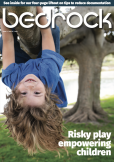
Workplace assaults are never acceptable, so let’s talk about making our schools safer.
A study into workplace injury undertaken by Monash University in 2022 found that staff in Australian schools claimed workers compensation for mental health conditions and assault-related injuries at higher rates than other professions.
As well as having a negative effect upon the health of teachers, dealing with these issues is also limiting the work of teachers. In July this year, the ABC reported on a Queensland government survey of 15,500 teachers and principals in which 50 per cent of respondents said the main issues taking time and attention away from educating students was student behaviour and reporting of incidents.
Assault-related injuries are not just physical; they also include verbal and online attacks that can have a detrimental effect upon a staff member’s psychosocial health.
A recent phenomenon exacerbating this problem is the misogyny and sexism experienced by mostly female staff at the hands of their male students. No one should have to put up with this or any other kind of abuse in their workplace.
The fact that teachers and support staff work with children is often seen as a reason to excuse it – but that’s not satisfactory. The union movement has long fought for respect and decency at work for everyone.
Record all incidents
To challenge the current state of affairs, the first step is recording these incidents. In the Parramatta diocese we have an Assault Register for staff to report incidents. This includes student-on-student incidents as well as student-on-staff incidents.
Information on the internal Oscar site states: “The Assault Register should be completed when the actions of a student have resulted in harm occurring to staff and/or students, or where a student’s actions may have had the potential to cause harm (that is, harm narrowly avoided).”
It goes on to say: “The information entered into the Assault Register can assist with identifying any suitable support mechanisms and may help to develop appropriate student management strategies in consultation with relevant parties (for example, the Student Wellbeing and Behaviour Team).”
Of course, all schools have their own online management systems, such as Compass, to record incidents. The problem is that data from these records is not accessible in a way that is useful to staff.
If we are to combat assaults on staff, it’s crucial to ensure that all employers are aware of the impact of assaults and that they take action.
Through my work as an IEU rep and attendance at sub branch and Council meetings, I’d like to ensure staff know about their respective Assault Register and its relevance to their protection and wellbeing.
Employers must act
Whether physical or verbal, assault is not a failure of classroom management or behaviour policy. It’s a serious incident that needs to be addressed by the employer. Your employer has a responsibility to deal with matters of assault.
Under the NSW Work Health and Safety Regulations, there is an expectation that the person conducting a business or undertaking must implement control measures for both physical and psychosocial risks (from 1 October 2022).
If incidents occurring in schools are reported through the Assault Register, it compels our employers to take action to provide meaningful and effective measures to minimise the risks, both physical and psychosocial, and therefore to improve safety for all staff.
I urge all members to record all assaults in the Assault Register. Don’t hold back on the detail, insist on action from your leadership teams and together let’s make our workplaces safe again.
In other dioceses, I urge you to check the process for recording assaults at your school, and follow up with your rep if there isn’t one – everyone’s safety depends on assaults being dealt with appropriately.









































































































































